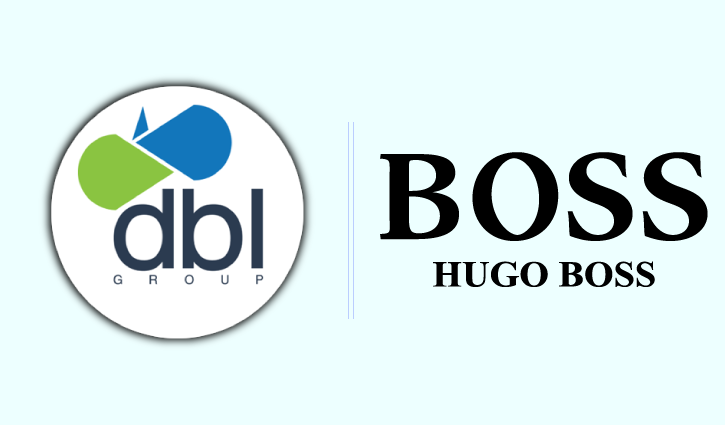DBL making apparels for Hugo Boss
BI Special || BusinessInsider

Logos of DBL Group and Hugo Boss
DBL Group, one of the largest garment exporters of Bangladesh, is making apparel products for Hugo Boss, which is considered as a high-end brand globally.
“We are producing garment items for Hugo Boss for the first time,” MA Jabbar, managing director of DBL Group, told the Business Insider Bangladesh on Wednesday.
DBL is among three to four local exporters who make apparels for Hugo Boss.
“Products are being diversified and we are using new components to add value. This is a great development for the country’s RMG sector,” said Jabbar in an interview over telephone.
DBL is producing T-shirts, shirts, trousers and truck-suits for Hugo Boss, a German-based brand that has outlets across the world.
According to Hugo Boss’ website, the retail price of its regular shirt starts at $150 and a T-shirt at $100, where other brands cost around $40-$50.
Currently, Hugo Boss sources apparel items from Thailand, Vietnam and China.
“We are also making sportswear and cotton-based products that we did not do before,” said the managing director of DBL Group.
Bangladesh’s export earnings during July-December period of the current fiscal year reached over $24.69 billion, 28.41 percent higher than the same period a year ago. Of which, readymade garments bagged nearly $20 billion, excluding home textiles, according to Export Promotion Bureau data.
Bangladesh’s export earnings reached a record $4.9 billion in December and may hit a $50-billion mark at the end of the current fiscal 2021-22, if the current trend continues, exporters said.
Jabbar said they are witnessing a good business growth so far this year and many factories have expanded their capacity to handle extra orders.
He believes it is quite possible to earn $50 billion from exports this fiscal year, but manufacturers have to invest for research and development to diversify products.
“We are using new components and materials, such as polyester and synthetics to add value to our products,” he said. “Earlier, we used to make basic products only,” he said.
Jabbar also shed light on the prices they get for the products they produce in Bangladesh.
“Price is very competitive as buyers do not want to pay more for basic items. If we want to get good prices, we have to go for making value-added apparel items,” he said.
Meanwhile, Bangladesh Bank data shows the value addition in the country’s RMG industry is on a decline for the last five consecutive quarters, mainly because of price hike of raw materials in the international markets amid the ongoing coronavirus pandemic.
According to a central bank review report on Bangladesh’s RMG sector, gross value addition in the sector stood at 53.41 percent in July-September quarter of fiscal 2021-22 (FY22), down from nearly 65 percent for the same quarter a year ago.
























